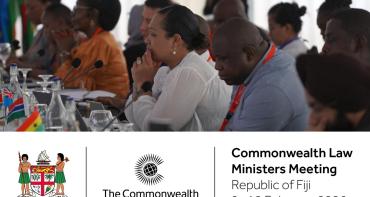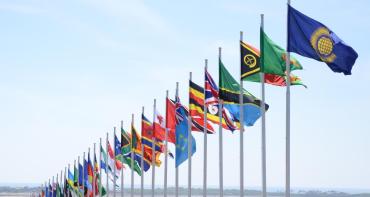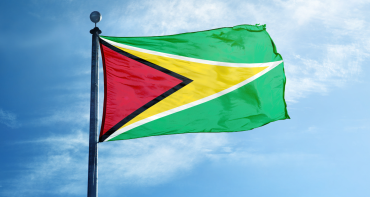Anti-corruption agencies in Africa have praised the Commonwealth Secretariat for bringing its resources and expertise to bear on national efforts to combat graft and enhance good governance.

Anti-corruption agencies in Africa have praised the Commonwealth Secretariat for bringing its resources and expertise to bear on national efforts to combat graft and enhance good governance.
Lucas Kondowe, chair of the Association of Anti-Corruption Agencies in Commonwealth Africa, which held a conference in Malawi earlier this month, congratulated the Secretariat on its work. “This has aided Commonwealth Africa to perform much better in fighting corruption than our non-Commonwealth neighbours,” he said.
Mr Kondowe, whose day-job is Director-General of the Malawi Anti-Corruption Bureau, said he and his peers value the assistance and training provided through the Commonwealth network.
The fresh focus given to anti-corruption by Secretary-General Patricia Scotland demonstrates that she is an “anti-corruption champion”, he added.
In Transparency International’s Corruption Perception Index, four of the top five countries in Sub Saharan Africa with the lowest perceived levels of corruption are Commonwealth member countries, with Botswana the highest performing.
For over two decades, the Commonwealth Secretariat has helped countries to tackle systemic corruption by supporting the sharing of best practices, training and capacity-building. In 2011, the Secretariat created the African anti-corruption association and, in 2013, established with the government of Botswana the Commonwealth Africa Anti-Corruption Centre, which it continues to support.
“The centre is the only avenue dedicated for systematic and quality capacity building available to anti-corruption agencies in Africa,” Mr Kondowe said.
At their conference in Malawi between 29 May and 2 June 2017, the agency heads underscored the importance of capacity development in crime prevention, investigations and the recovery of the proceeds of corruption, and agreed to strengthen cross-border collaboration.
“Delegates were unanimous in their resolution to continue with their efforts in fighting corruption in their respective countries and the larger Commonwealth Africa region to achieve Sustainable Development Goal 16 [on justice and strong institutions], counting on the Commonwealth Secretariat’s continued support,” Mr Kondowe said.
Dr Roger Koranteng, Head of Public Sector Governance at the Commonwealth Secretariat, said “the decision to establish the Association of Anti-Corruption Agencies in Commonwealth Africa was borne out of the belief that co-operation was necessary in order to confront what is, increasingly, an existential threat.
“People especially the poor get hurt when resources are squandered. That’s why it is so important to understand the different kinds of corruption to develop smart responses. Any good strategy must be continually monitored and evaluated to make sure it can be easily adapted as situations on the ground change.”
In her message to the conference, Secretary-General Scotland said: “We can all take pride in the fact that Commonwealth countries in the region are making progress in strengthening their legal frameworks and in building their institutional capacity to tackle bribery and abuse of office.”
“Sustained attention by governments and donor partners can continue to reduce and, we hope, ultimately eliminate the damage inflicted by corruption – a cost borne primarily by the poorest and most vulnerable people in our communities.”
Mr Kondowe said her speech was “well received and we sincerely thank [the Secretary-General] for being an anti-corruption champion”.
The association’s next regional conference will be held in Nigeria in 2018.
Find out more: thecommonwealth.org/tacklingcorruption



